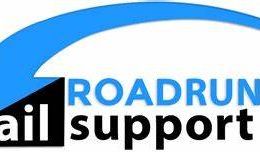Top Reasons to Enroll in a Data Analytics Course in 2025
As we step into 2025, the data-driven revolution shows no signs of slowing down. From healthcare and finance to retail and logistics, organizations across all industries are leveraging data to drive business decisions, optimize operations, and gain competitive advantages. But while the demand for data is growing, there’s an even greater demand for professionals who can analyze and interpret that data effectively.
If you’re considering upskilling or transitioning into a future-proof career, enrolling in a data analytics course could be the smartest move you make this year. In this blog, we’ll explore the top reasons why 2025 is the ideal time to take this leap—and how data analytics can shape your professional future.
Reasons to enroll in the Data Analytics Course in 2025
Here are the top reasons why 2025 is the perfect year to invest in a data analytics course:
1. Explosive Growth in Demand for Data Analysts
According to reports from industry leaders like Gartner and McKinsey, the global shortage of skilled data professionals is expected to widen in the coming years. Organizations are struggling to find talent that can turn raw data into actionable insights. From entry-level data analysts to advanced data scientists, there’s a wide spectrum of roles waiting to be filled.
This talent gap creates a golden opportunity for anyone willing to invest time in learning. By enrolling in a data analytics course, you not only become more employable but also position yourself in a high-demand field that offers strong career security and growth.
2. Diverse Career Opportunities Across Industries
One of the biggest advantages of data analytics is its universal application. Whether you’re passionate about sports, healthcare, marketing, e-commerce, or environmental sustainability, data analytics plays a vital role in each of these sectors.
Some roles you can pursue after a data analytics course include:
-
Data Analyst
-
Business Intelligence Analyst
-
Marketing Analyst
-
Financial Analyst
-
Product Analyst
-
Operations Analyst
This flexibility means you don’t have to be tied to one specific industry—you can work where your passion lies while still making data-driven impact.
3. Higher Salary Potential
Data analytics professionals are among the most well-compensated employees in the job market. As companies increasingly rely on data to steer decision-making, they’re willing to pay top dollar for professionals who can help them extract value from it.
Entry-level data analysts in India can earn between ₹5–8 LPA, while those with more experience or specialization in tools like SQL, Python, Tableau, or machine learning can command even higher salaries. In cities like Bangalore, Mumbai, and Delhi, the demand is especially strong due to the concentration of startups and MNCs.
4. Future-Proof Your Career
As automation and artificial intelligence become more integrated into the workplace, traditional jobs in administration, clerical work, and even finance are undergoing transformation or becoming obsolete. Data analytics, however, is one of the few domains expected to grow consistently.
By gaining skills in data analytics, you essentially make your career “automation-proof.” Machines can process data, but human insight is still crucial to ask the right questions, interpret results, and make nuanced decisions. That’s where your role as a data analyst becomes indispensable.
5. Improved Decision-Making Skills
Learning data analytics isn’t just about coding or using Excel sheets—it’s about developing a mindset. A good course teaches you how to approach problems critically, understand business contexts, ask insightful questions, and back your decisions with data.
These skills can be applied in virtually any role, making you a more valuable contributor to any team or organization. Whether you’re in HR trying to optimize recruitment or in sales trying to identify target markets, data analytics will sharpen your strategic thinking.
6. Learning In-Demand Tools and Technologies
Modern data analytics involves a mix of programming, visualization, and data wrangling. A comprehensive course will introduce you to industry-standard tools such as:
-
Python or R for data processing
-
SQL for database management
-
Tableau or Power BI for visualization
-
Excel for spreadsheet analysis
-
Google Analytics for web data tracking
These tools are widely used across industries, and mastering them gives you a strong edge in the job market.
7. Work Flexibility and Remote Opportunities
With the rise of hybrid and remote work models, data analytics roles are increasingly becoming location-independent. As long as you have a laptop and internet access, you can work from anywhere.
This flexibility is particularly attractive for professionals seeking better work-life balance or those living outside major tech hubs. Even if you’re based in a city like Jaipur or Kochi, your skills can land you projects or full-time roles with companies in Delhi, Bangalore, or even overseas.
8. Customized Learning Paths Available
Not all learners are the same. Some may be beginners with no technical background, while others may come from IT or finance and want to deepen their analytical capabilities. The good news is that most modern courses now offer flexible learning paths tailored to different experience levels.
Whether you opt for an online bootcamp, weekend program, or in-person class, there are plenty of customizable options. For example, if you’re looking for a career-focused program with strong placement support, exploring a data analytics training course in Delhi could connect you with hands-on mentors and real-world projects from local industries.
9. Opportunities to Freelance or Start Your Own Venture
With data being such a valuable commodity, companies large and small are looking to make sense of their numbers—but not all can afford full-time analysts. This opens doors for freelance data analysts who can consult for multiple businesses.
Additionally, if you have an entrepreneurial streak, data analytics can help you identify gaps in the market, test business models, or optimize digital campaigns—all essential for launching your own startup.
10. Boost Your Resume with Certifications
Completing a recognized data analytics course adds immediate credibility to your resume. Employers often look for certifications as a way to filter candidates who are serious and well-prepared.
Many courses offer capstone projects or real-time case studies, which you can showcase in your portfolio. Combined with your certification, this hands-on experience makes your job application more competitive and gives you talking points during interviews.
Final Thoughts
As the world becomes increasingly data-centric, those who can understand and harness the power of data will lead the way. Enrolling in a data analytics course in 2025 is more than a career upgrade—it’s a strategic move toward long-term professional relevance, security, and growth.
Whether you’re a fresh graduate, a mid-career professional, or someone exploring new opportunities, data analytics offers a wealth of possibilities. So take that step today. The future is data-driven—and it needs skilled interpreters like you.












